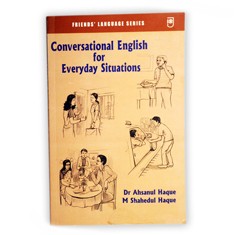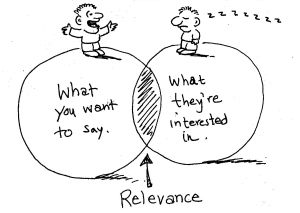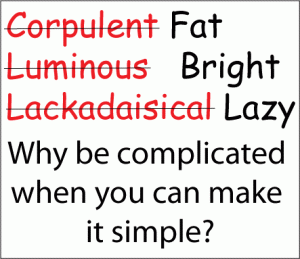The Cooperative Principle
Pragmatics deals with the ways in which context (the situation) contributes to meaning.

An important idea in Pragmatics, suggested by Grice, is that speakers cooperate with each other to make sense of what is being said. So, whatever you say, the listener will always assume that you are trying to cooperate in some way.

Grice suggested that there are also four conversational maxims that are used in addition to the Cooperative Principle.


The first maxim is the Maxim of Quantity. This just says that you should not say more than is necessary, and you should not say less than is necessary.
The second maxim is the Maxim of Quality. This just means that you should speak the truth. Do not say anything that is false.

The third maxim is the Maxim of Relation. This just means that you should say things that are relevant to the conversation. You will notice that the Maxim of Relation and the Maxim of Quantity overlap quite a bit.

The fourth maxim is the Maxim of Manner. This just says that you should not say things that are difficult to understand (because they are ambiguous or obscure, for example).


Of course, the problem with these maxims is that they are violated all the time. Actually, it is a bit difficult to find any examples of real conversation that actually obey the maxims!

Grice had an answer to this problem; he said that violations of the maxims lead us to think about what the speaker is implying.

In other words, speakers violate these maxims in order to have an intended effect; this is called implicature. Imagine I say “I’m hungry” and you reply “Let me get my cellphone out.” Just looking at the meaning of the utterances, the reply does not seem strictly relevant. You (usually) cannot eat a cellphone! So the reply violates the Maxim of Relation. However, we can use our knowledge about the world and the general assumption that speakers are trying to be cooperative, in order to make sense of it. How would you make sense of this example?


